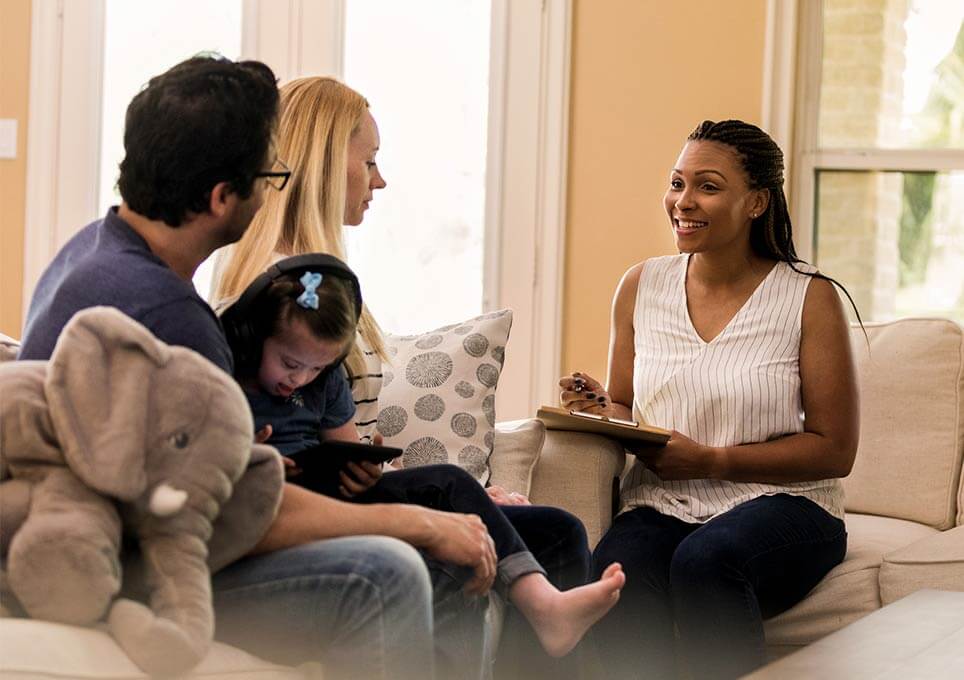Explore Counselling at ACAP
The study of counselling is all about learning how to help people navigate life’s challenges and offer support, guidance and practical strategies to improve mental health and wellbeing. A degree in counselling opens doors to a range of rewarding careers – not only in mental health, but also in fields like education, social services and community work.
Whether you’re interested in becoming a professional counsellor or applying counselling skills in a related role, studying counselling at ACAP University College provides the essential knowledge and hands-on experience you need to make a real degree of difference in the lives of others.
Today, we’ll answer some of your frequently asked questions, including “What can you do with a counselling degree?” and explore the many counselling career pathways available to you as a counselling graduate.
Let’s start with what a degree in counselling entails and what you’ll learn during your studies.

WHAT IS A COUNSELLING DEGREE?
A counselling degree equips you with the theoretical knowledge and practical skills needed to provide others with emotional support, guidance and therapeutic interventions. When you study counselling, you’ll explore topics such as psychological theories, ethics in counselling, communication techniques and mental health support strategies.
Throughout your studies, you’ll develop key skills in active listening, empathy, problem-solving and resilience. These skills are essential in professional counselling settings, as well as in roles across healthcare, education, social work and beyond.
A counselling qualification also includes hands-on experience, often through supervised placements, allowing you to build your confidence in real-world scenarios before entering the workforce.

What CAN YOU DO WITH A COUNSELLING DEGREE?
A counselling degree can lead to meaningful careers in a variety of industries. Keep reading to explore some of the most common and fulfilling career paths available to counselling graduates.
PROFESSIONAL COUNSELLOR
Becoming a professional counsellor is one of the most common pathways taken by graduates after completing a counselling degree. Counsellors work with individuals, couples and groups to address personal challenges, emotional difficulties and mental health concerns.
Counsellors might choose to specialise in areas such as:
- mental health counselling, supporting individuals experiencing anxiety, depression, trauma or stress-related issues.
- relationship counselling, helping couples and families navigate challenges, improve communication and strengthen relationships.
- addiction counselling, working with clients struggling with substance use, gambling or other addictive behaviours.
- grief and loss counselling, providing support to individuals coping with bereavement and major life transitions.
Many professional counsellors work in private practice, community organisations, healthcare settings or educational institutions.
To become a registered counsellor, students are required to complete one of the accredited counselling courses in Australia, such as ACAP’s Bachelor of Counselling or Bachelor of Psychological Science and Counselling. Both of these three-year degrees are professionally accredited by industry bodies including the Psychotherapy and Counselling Federation of Australia (PACFA), enhancing your career prospects post-graduation.
Students who have already completed a related undergraduate degree might choose to continue their studies with a postgraduate course. At ACAP, your options for postgraduate counselling courses include:
- Master of Counselling and Psychotherapy, a comprehensive course designed to expand upon your existing skills as an emerging professional counsellor.
- Graduate Certificate of Counselling, a 26-week course developed for students with an undergraduate degree in another discipline and want to develop foundational skills in the helping professions.
- Diploma of Counselling Skills, a one-year course that equips students with skills to provide community service and counselling support to others.
For more information on how to become a counsellor in Australia including the skills needed and study pathways to help you get there, visit our blog post.
YOUTH AND SCHOOL COUNSELLOR
Youth and school counsellors play a critical role in supporting students’ emotional and social wellbeing. Working within schools, universities and youth services, they help young people navigate challenges such as academic pressure, family issues, bullying and mental health concerns.
These professionals provide one-on-one support, facilitate group programs and collaborate with teachers and parents to create supportive learning environments. A background in counselling is highly valuable for roles in student wellbeing services and educational psychology.
COMMUNITY SERVICES AND SOCIAL WORK PROFESSIONAL
A counselling degree is highly relevant to careers in community services, where professionals work with vulnerable individuals and groups to promote wellbeing and social inclusion.
Here are just a few of the community-based roles in which counselling skills are considered valuable:
- Case manager – Assisting individuals in accessing social services and support programs.
- Family support worker – Providing guidance to families facing challenges such as domestic violence, financial stress and parenting difficulties.
- Crisis support worker – Responding to individuals in distress, such as those experiencing homelessness or at risk of self-harm.
These professionals often work in non-profit organisations, government agencies and crisis intervention services, making a tangible impact on communities.

WORKPLACE AND EMPLOYEE ASSISTANCE PROGRAMS (EAP) PROFESSIONAL
Counselling graduates are well-suited for roles in Employee Assistance Programs (EAPs) and corporate wellbeing initiatives.
EAP counsellors provide confidential support to employees dealing with work-related stress, personal challenges and mental health concerns. They may also deliver professional training and workshops on resilience, conflict resolution and stress management, helping to foster healthier work environments.
REHABILITATION AND DISABILITY SUPPORT WORKER
Counselling graduates can find fulfilling careers in rehabilitation and disability services, supporting individuals with physical, cognitive or psychosocial challenges.
Roles in this sector may include:
- rehabilitation counsellor, assisting individuals recovering from injury or illness to regain independence and return to work.
- disability support coordinator, helping people with disabilities access services and develop life skills.
- carer support worker, providing guidance and respite to those caring for loved ones with disabilities or chronic conditions.
These roles involve collaboration with healthcare professionals, social workers and community networks to enhance quality of life for clients.
CORRECTIONS AND JUSTICE SUPPORT WORKER
A counselling qualification can also lead to careers in the justice system, working with individuals involved in the legal and corrections sector.
Counsellors in this field provide support to:
- individuals in correctional facilities, offering rehabilitation programs, trauma-informed care and mental health support.
- victims of crime, assisting individuals affected by trauma and violence through counselling and advocacy services.
- youth justice programs, supporting young people involved in the criminal justice system to make positive life changes.
These roles contribute to rehabilitation efforts and help individuals rebuild their lives after difficult experiences.

READY TO STUDY COUNSELLING?
Whether you choose to work in mental health, education, social services or corporate wellbeing, studying one of ACAP’s counselling degrees will equip you with the skills and experience to succeed in a range of meaningful roles.
Still wondering, “What can you do with a counselling degree?” Our Course Advisors are available to answer any lingering questions you might have. Book a call with our team to chat through your study options, counselling career pathways, enrolment processes and more.

